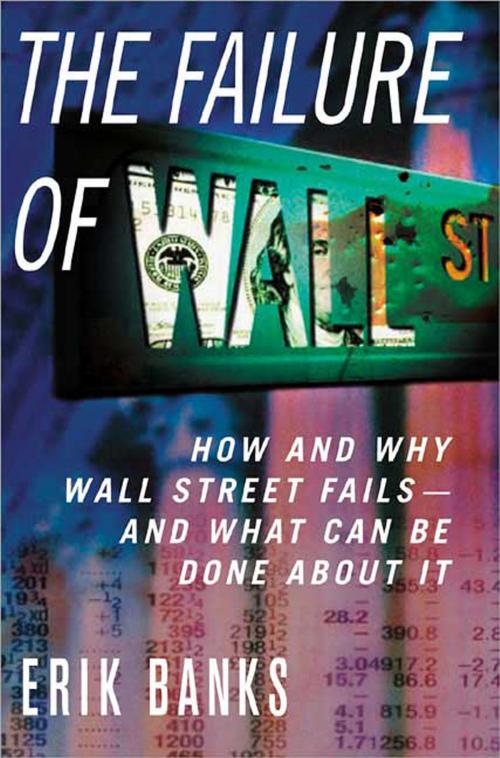The Failure of Wall Street
How and Why Wall Street Fails -- And What Can Be Done About It
Business & Finance, Finance & Investing, Finance, Industries & Professions, Industries| Author: | Erik Banks | ISBN: | 9781466888319 |
| Publisher: | St. Martin's Press | Publication: | December 23, 2014 |
| Imprint: | St. Martin's Press | Language: | English |
| Author: | Erik Banks |
| ISBN: | 9781466888319 |
| Publisher: | St. Martin's Press |
| Publication: | December 23, 2014 |
| Imprint: | St. Martin's Press |
| Language: | English |
Wall Street, the world's primary financial market and middleman, is in many ways a success. It brings together and places capital, creates new and innovative financial products, and buys and sells physical and financial assets. Its role in global economic growth has been, and remains, unique and vital. In spite of its importance and strengths, however, Wall Street repeatedly fails. At all levels, Wall Street makes serious mistakes in its core areas of expertise – falling short of its potential when raising capital, giving advice or managing risk, and demonstrating vulnerabilities when carrying out its responsibilities. These failures, which damage both finances and reputations, often affect a broad range of insiders and outsiders: employees and managers, personal and corporate clients, investors, creditors and regulators. In some cases they destabilize entire sectors and economies. Worse, many of these failures are likely to plague Wall Street for years to come, until there is greater willingness to recognize and resolve the underlying problems.
The Failure of Wall Street analyzes how and why Wall Street fails, and what can be done to rectify the failures. After a short discussion of Wall Street's role in raising capital, granting corporate and personal advice, managing risk and acting as a trusted financial analyst, Erik Banks explores the dramatic failures that have occurred in each of these areas, using case studies and examples to illustrate the nature and extent of the problems. Next, the book demonstrates why Wall Street fails in each area of supposed "expertise," focusing on shortcomings in governance, management, skills/controls and transparency. Lastly, Banks proposes a framework for addressing the shortfalls that continue to plague Wall Street. He argues that these solutions, while not quick, easy, or cheap to implement, can help make Wall Street become the sound, consistent, and efficient financial expert it is meant to be.
Wall Street, the world's primary financial market and middleman, is in many ways a success. It brings together and places capital, creates new and innovative financial products, and buys and sells physical and financial assets. Its role in global economic growth has been, and remains, unique and vital. In spite of its importance and strengths, however, Wall Street repeatedly fails. At all levels, Wall Street makes serious mistakes in its core areas of expertise – falling short of its potential when raising capital, giving advice or managing risk, and demonstrating vulnerabilities when carrying out its responsibilities. These failures, which damage both finances and reputations, often affect a broad range of insiders and outsiders: employees and managers, personal and corporate clients, investors, creditors and regulators. In some cases they destabilize entire sectors and economies. Worse, many of these failures are likely to plague Wall Street for years to come, until there is greater willingness to recognize and resolve the underlying problems.
The Failure of Wall Street analyzes how and why Wall Street fails, and what can be done to rectify the failures. After a short discussion of Wall Street's role in raising capital, granting corporate and personal advice, managing risk and acting as a trusted financial analyst, Erik Banks explores the dramatic failures that have occurred in each of these areas, using case studies and examples to illustrate the nature and extent of the problems. Next, the book demonstrates why Wall Street fails in each area of supposed "expertise," focusing on shortcomings in governance, management, skills/controls and transparency. Lastly, Banks proposes a framework for addressing the shortfalls that continue to plague Wall Street. He argues that these solutions, while not quick, easy, or cheap to implement, can help make Wall Street become the sound, consistent, and efficient financial expert it is meant to be.















